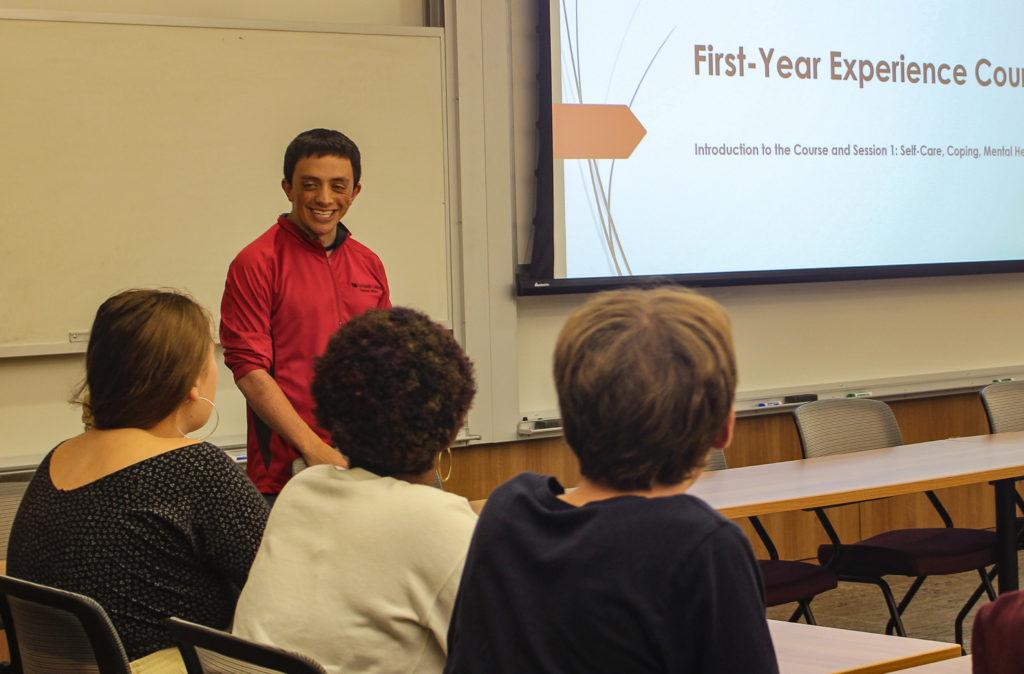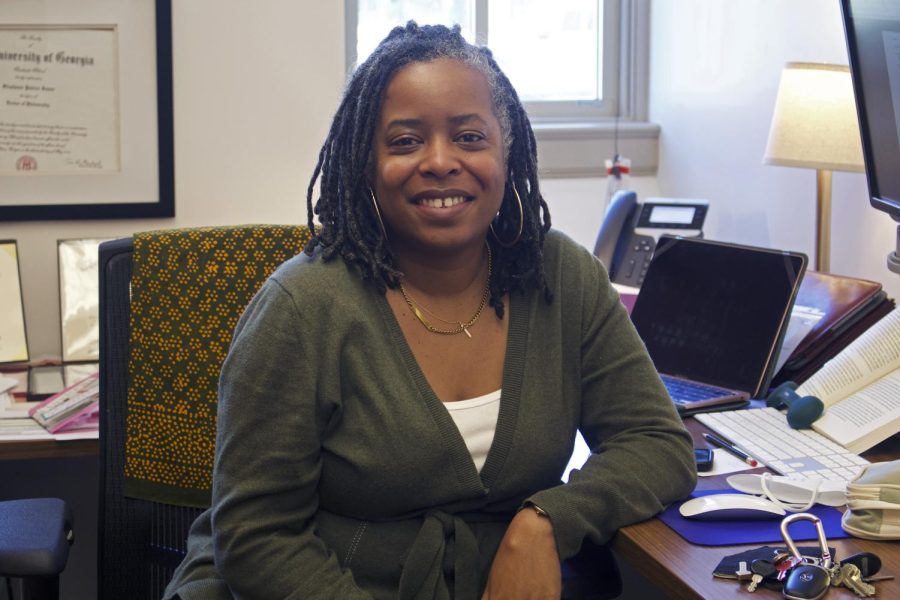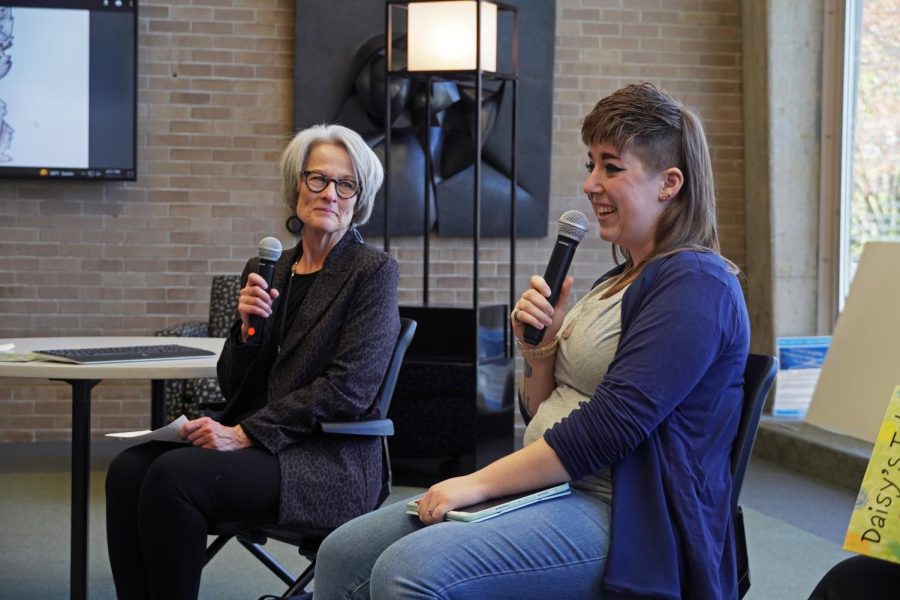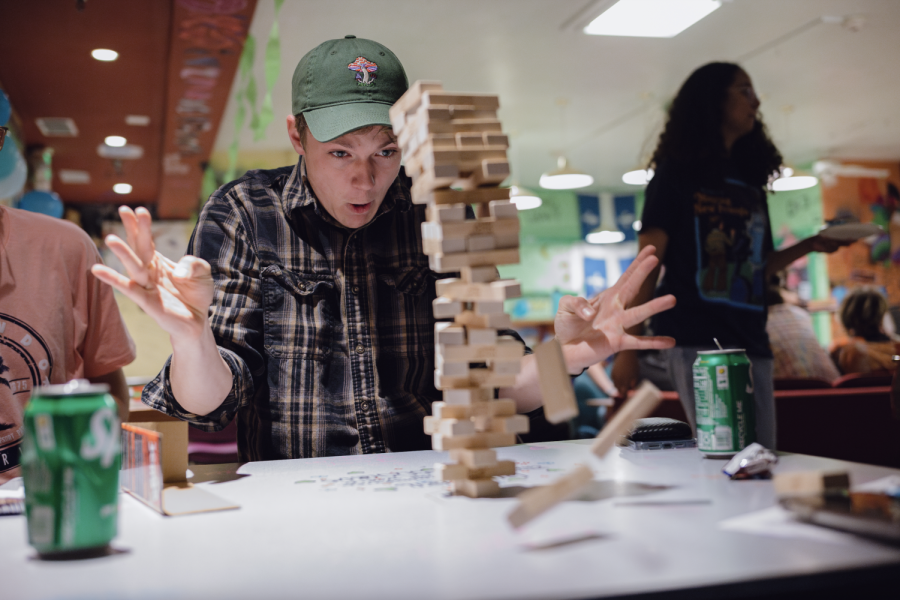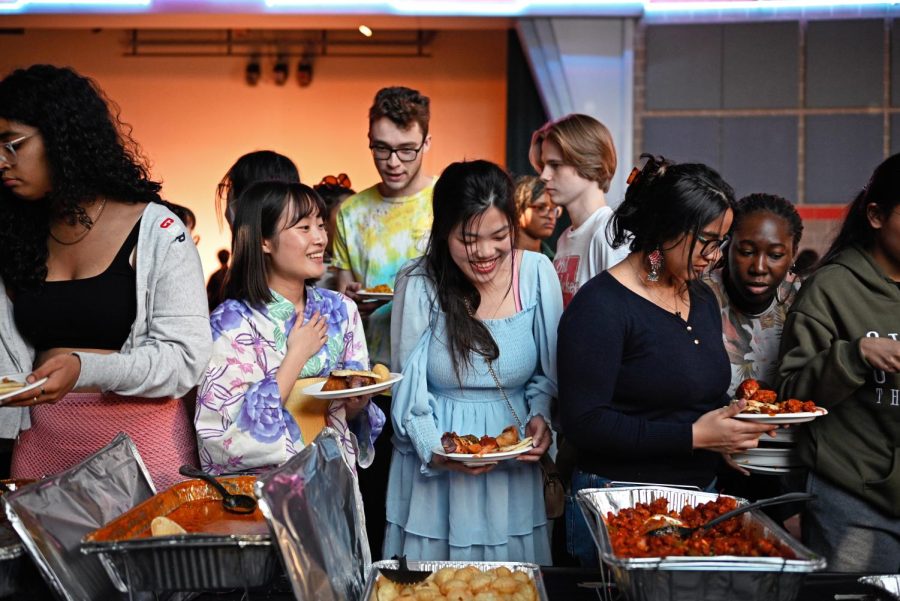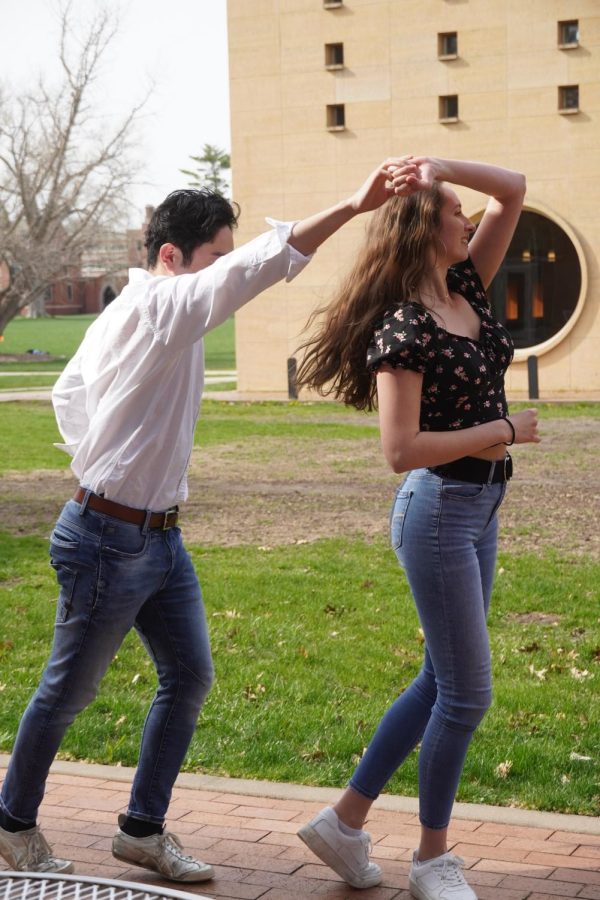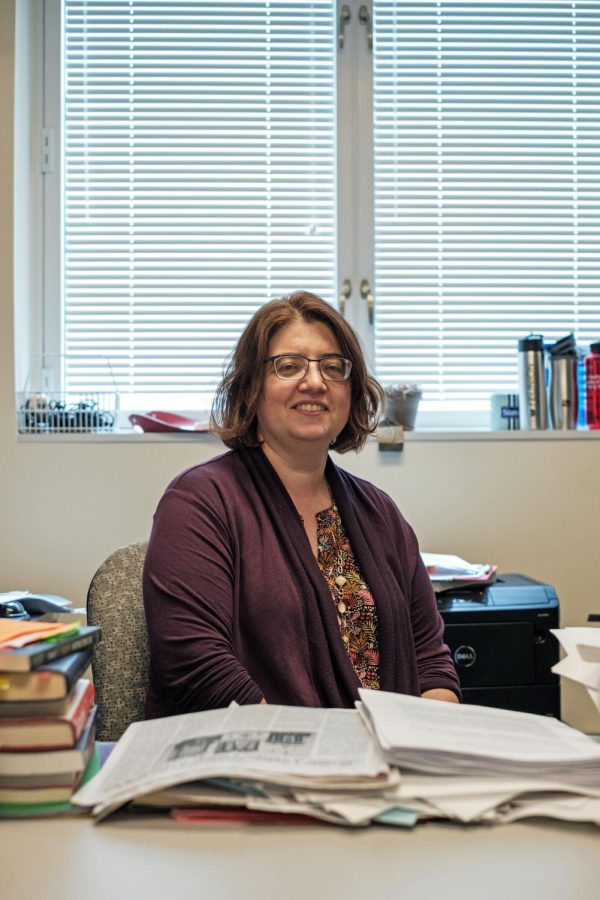A faculty vote on May 4 will decide if the First-Year Experience (FYE) course will become a requirement for graduation at Grinnell College. But some students who’ve taken the course are questioning how useful it really is.
The course, directed towards first-year students, was created on a recommendation from the residential learning task force, which is comprised of students, faculty, staff, alumni and trustees. The goal for the course was to have students gain a common language and understanding of topics ranging from identity to sexual respect.
The task force’s recommendation first resulted in staff members, such as Jordan Brooks in Intercultural Affairs and Adam Gilbert, a residence life coordinator (RLC), visiting five first-year tutorials to deliver class information sessions in the 2017-2018 academic year.
In the 2018-2019 academic year, the sessions expanded to 11 tutorial classes. Each year, students were surveyed about their thoughts on the program, and this led to a consensus that students in the tutorials with the staff session felt more equipped with knowledge of College resources and were more comfortable talking about diversity and inclusion than those who did not.
At the end of the two years of trials in 2019, the faculty voted on changes to the program and decided to create a separate short course in a new two-year pilot program titled “First-Year Experience,” or FYE. The College intended for the course to elaborate on topics introduced in New Student Orientation (NSO).
The FYE course for the 2019-2020 academic year was .5 credits, met biweekly on Monday for six two-hour class sessions in the fall or spring semesters and was taught by a mix of faculty and staff.
Students who took the class and spoke with The S&B appreciated the idea of the course but questioned the execution of it.
“It has a lot of potential, but administration has to consider what makes it different from NSO,” said Enya Gamble `22, who was in one of the original 11 pilot tutorials. “There needs to be a difference or else it is pointless.”
Evaan Ahmed `23, who agreed the intentions of the course were good, said it did not enhance the Grinnell experience.
“Teachers weren’t teaching it,” said Ahmed, noting that he saw the facilitator’s apparent lack of pedagogical training as a weakness. Ahmed said many facilitators looked just as tired as the students of the course as they struggled to stay awake in the class. “They clearly did not know how to keep us engaged.”
Spencer Clark `23 completed FYE on Monday nights every other week in the 2019 fall semester. Clark said, “Having a night class as a first year was a little rough. … Even though it was one night, it felt like a chore.”
Even though it was one night, it felt like a chore. – Spencer Clark
Jennifer Jacobsen, the First-Year Experience course assessment coordinator, said she’d heard that many students disliked the Monday night times a lot and that students found that the course flowed better when taken after, instead of in conjunction with, first-year tutorials.
In response, the administration shifted to offering various options for the course during the 2020-2021 school year. Once the College split the year into four quarters with two terms per semester due to the pandemic, the FYE course became planned for Fall 2 for most students in order to follow the first-year tutorials. The course was also offered in Spring 1 this year for international students who would be on campus at that time.
Still, after these changes, a disconnect remains between the College administration’s outlook on the future of FYE and student opinion on the course.
“While the majority of students respond positively to the course on the student survey, when Institutional Research disaggregates the data, domestic students of color and international students are the most likely to self-report positive outcomes of the FYE Course,” Jacobsen wrote in an email regarding statistics of student feedback for the course, which consisted of over 700 responses between Fall 2019, 2020 and Spring 2021 pilot courses.
None of the students interviewed by The S&B thought that FYE needed to be its own course, though. Instead, students referred to NSO and the International Pre-Orientation Program (IPOP) as capable of covering the issues in FYE.
Andrea Suazo `24 took FYE in the Spring 1 term. Although there was one session that met in person, her FYE was mostly online and was comprised of international students. “I felt like I already knew everything from the first semester,” Suazo said. “Coming as an international student, I felt that the class did not give a focus on international perspective.”
Derek Estep `24 completed the course during the Fall 2 term when the class met every week. He did not think he gained much from the course. Estep also said he thought much of the course was common sense and was not presented in an engaging way.
“It seemed everyone was digging into shallow vulnerability, because none of us knew anybody,” Estep said. As an example, he cited the fishbowl identity activity where he said many of the students avoided talking about more sensitive topics such as race or sexuality and focused on their identity as athletes.
It seemed everyone was digging into shallow vulnerability, because none of us knew anybody. – Derek Estep
Nina Takashima `24 said she liked that her cohort was a completely different group of people than her other, STEM-centered classes, but she also said the course felt awkward since she did not have a relationship with the majority of her peers in the class. “I guess that just comes with it being online. It is kind of weird.”
Students interviewed suggested changes to better the FYE experience which included adding team-building exercises before going into the material, consolidating the course to allow the content to be covered in NSO or going back to being integrated into tutorial instead of adding one more course for students to take.
Jacobsen said FYE is not supposed to be redundant but rather a way to amplify the messages of NSO and pre-orientation programs. She also said that staff going in and out of tutorials was awkward for both students and faculty which resulted in a separate course.
“New Student Orientation is mostly an opportunity to share some knowledge. First-Year Experience course is really more about building skills and intentions,” said Jacobsen. “If you were taking Intro to Calculus, your professor would not talk about a concept once and never see it again.”
“Right now, knowing everything we know about the positive feedback from the faculty, the staff and the students about the course, and the fact that it seems to disproportionally benefit some students who traditionally don’t see themselves as being as successful in higher education, we’re just really optimistic that the faculty vote is going to support this,” said Jacobsen.
Sarah Moschenross, vice president of Student Affairs, said she hopes for greater student involvement with potential for student teaching and mentorship opportunities.
“There has not been a change [in graduation requirements] for over 50 years,” said Moschenross. “There is a lot of dialogue and discussion happening to make sure that this is meeting the needs of our students and that it is getting the outcome intended.”

















































